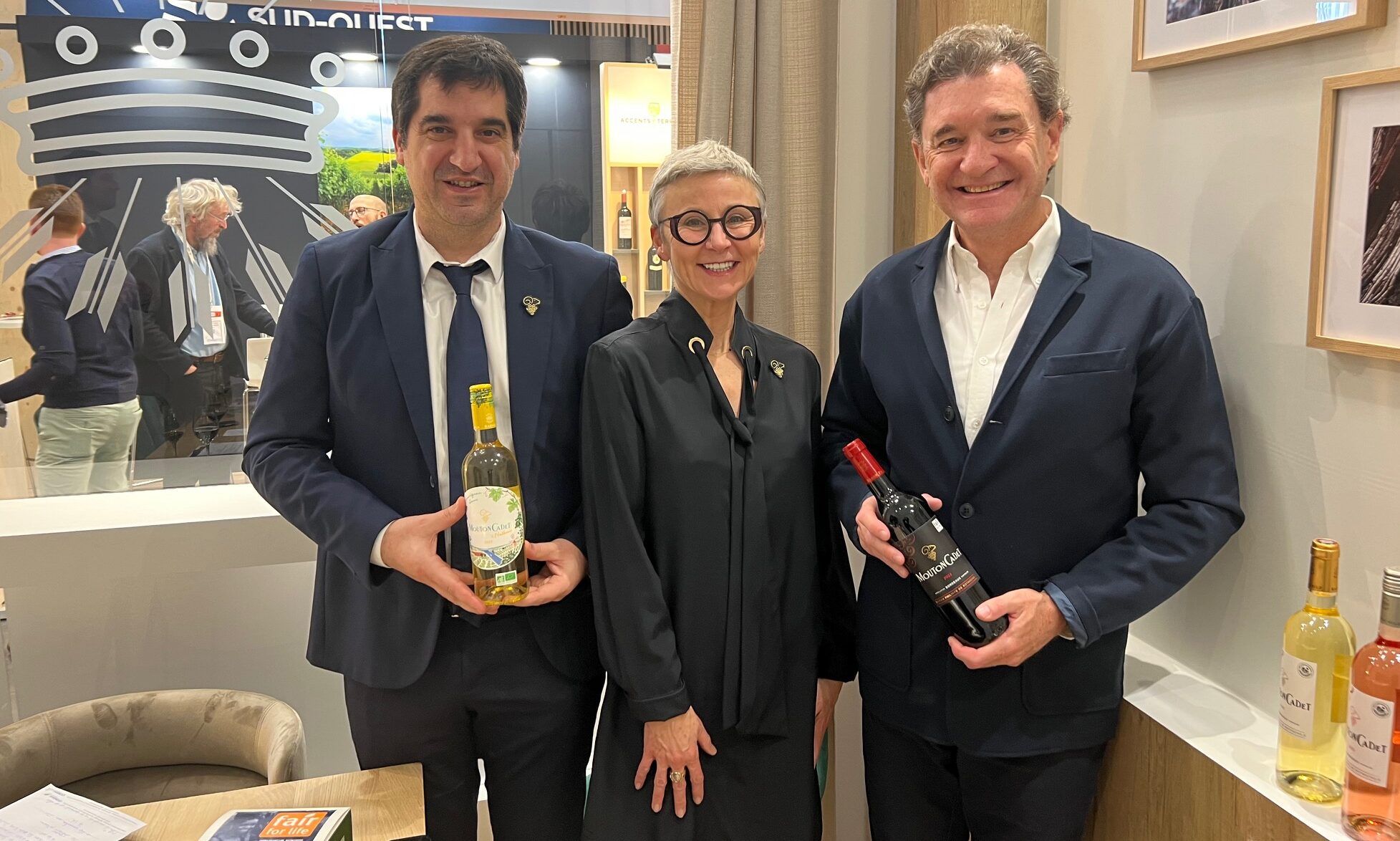Richard Siddle talks to the senior Baron Philippe de Rothschild team about how Mouton Cadet can be a “standard bearer to show what can be achieved be it in Bordeaux or around the world, by growers and producers working actively and effectively together.”
Any industry has brands and businesses that stand out from their peers. Be it their size, history, reputation or influence, what they say and do carries more weight and authority. It also brings more responsibility too.
As it is with leading French and Bordeaux wine brand, Mouton Cadet – that was named theeighth most powerful wine brand in the world in Wine Intelligence’s Global Wine Power Index 2022 based on the performance of wine brands in 20 of the most key wine markets in the world.
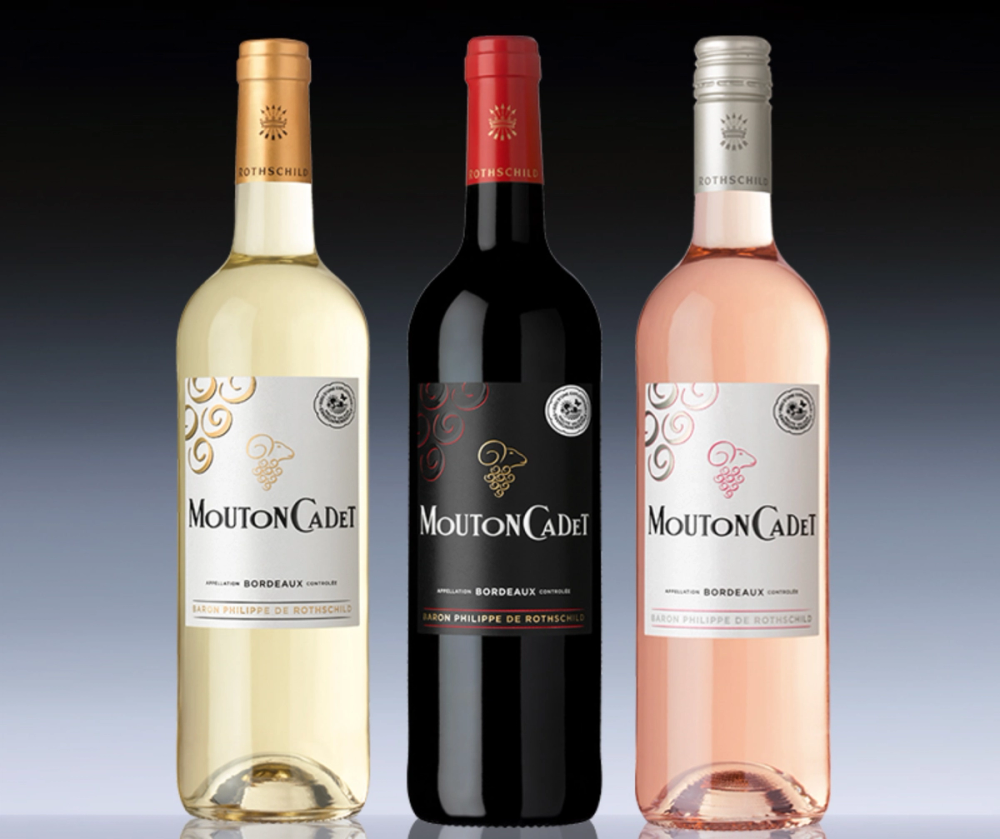
The world famous Mouton Cadet wine brand
An index that, noticeably, is calculated partly on how well that brand is trusted by consumers and what affinity they have with that brand, as well as how aware they are of it and whether they might buy it or not.
Trust and affinity are two highly powerful attributes for any brand to achieve. They are also easily and quickly lost unless the brand, and the business behind it, is constantly changing, adapting and listening to what their consumer wants and needs.
Which is why Mouton Cadet’s 2022 score and top eight position would have been very welcome news for its owner, Baron Philippe de Rothschild. For it is a marked improvement on where it was in 2020 where it had seen its position fall a worrying five places on the year before to 10th in the Wine Intelligence chart.
A fall that had seen its overall score drop from 38.1 in 2019 to 29.5 in 2020. A decline that was also a long way from its peak in 2018 when it was named as Wine Intelligence’s joint third most powerful wine brand in the world.
The fact it is now on the way to recovering that position is evidence of a clear change in direction and focus even for a brand and business as well established and respected as Mouton Cadet and Château Mouton Rothschild.
It also marks a long term change in direction that has been in place since the arrival of Véronique Hombroek as executive director for branded wines at Baron Philippe de Rothschild in January 2018. Jérôme Aguirre also came on board as wine director in March 2022.
New direction
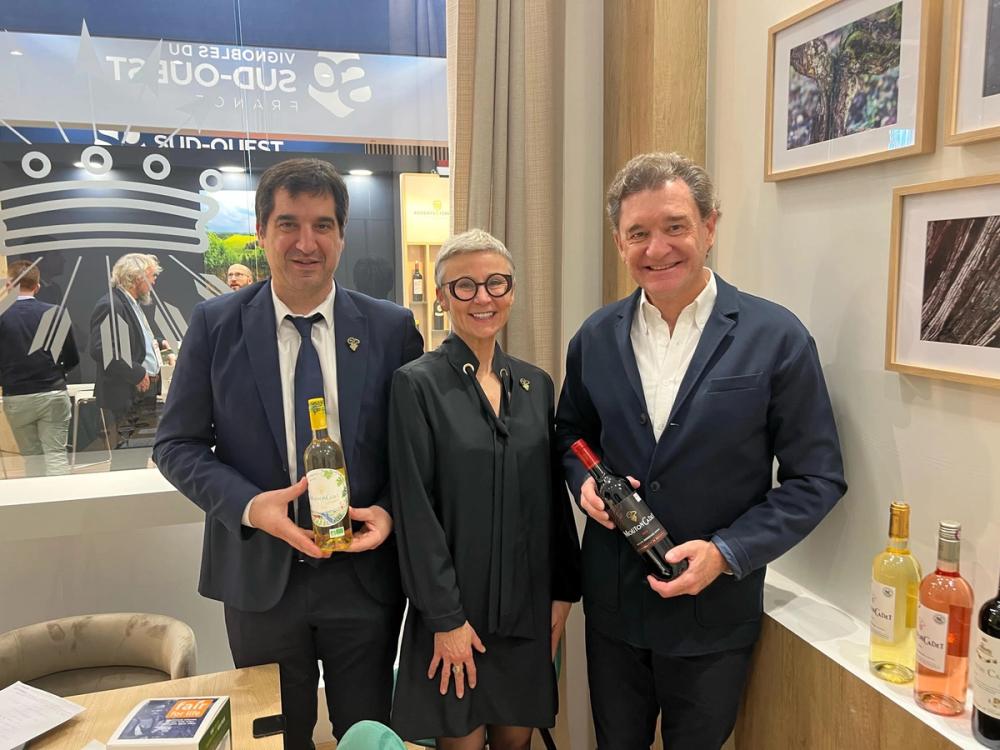
Véronique Hombroek, executive director for branded wines at Baron Philippe de Rothschild, with Philippe Sereys de Rothschild, right, and wine director Jérôme Aguirre at Wine Paris & Vinexpo Paris in February
Together with chief executive, Philippe Sereys de Rothschild, they have been responsible for setting a new brand strategy and direction that is firmly centred around sustainability and how it treats both its grapes and the people that grow and manage them.
A long term commitment that was revealed at last month’s Wine Paris & Vinexpo Paris under its new Fair for Life fair-trade accreditation. A scheme it claims “offers tangible proof of the brand’s enduring commitment to a sustainable and more secure future for its winegrowers”.
Fair for Life certification also covers Mouton Cadet’s entire supply chain to ensure the highest ethical and sustainable practices are being followed across areas including human rights, working conditions, biodiversity, agricultural best practice, governance and fair-trade relations.
Philippe Sereys de Rothschild admitted that thanks to the family’s position it was in a unique position to put in place a long term sustainable commitment that other private businesses could not commit to.
“Because of the family we have the freedom to do that. We need to be thinking 10 to 20 to 30 years ahead. We are lucky to be able to think about the long term,” he said.
There are many aspects of business that you can control as a wine producer, he added, but the one factor you have no influence over is the climate. “You can’t control that. The planet is changing and you have to act now in order to safeguard it for the next generations, who already have a different view of the world than we do. It is difficult to put ourselves in their shoes, but we have to listen to them and respect climate change and respond to it.”
Hombroek agreed: “We are in a privileged position to take the time and effort to make the changes that make sense.”
Standard bearer
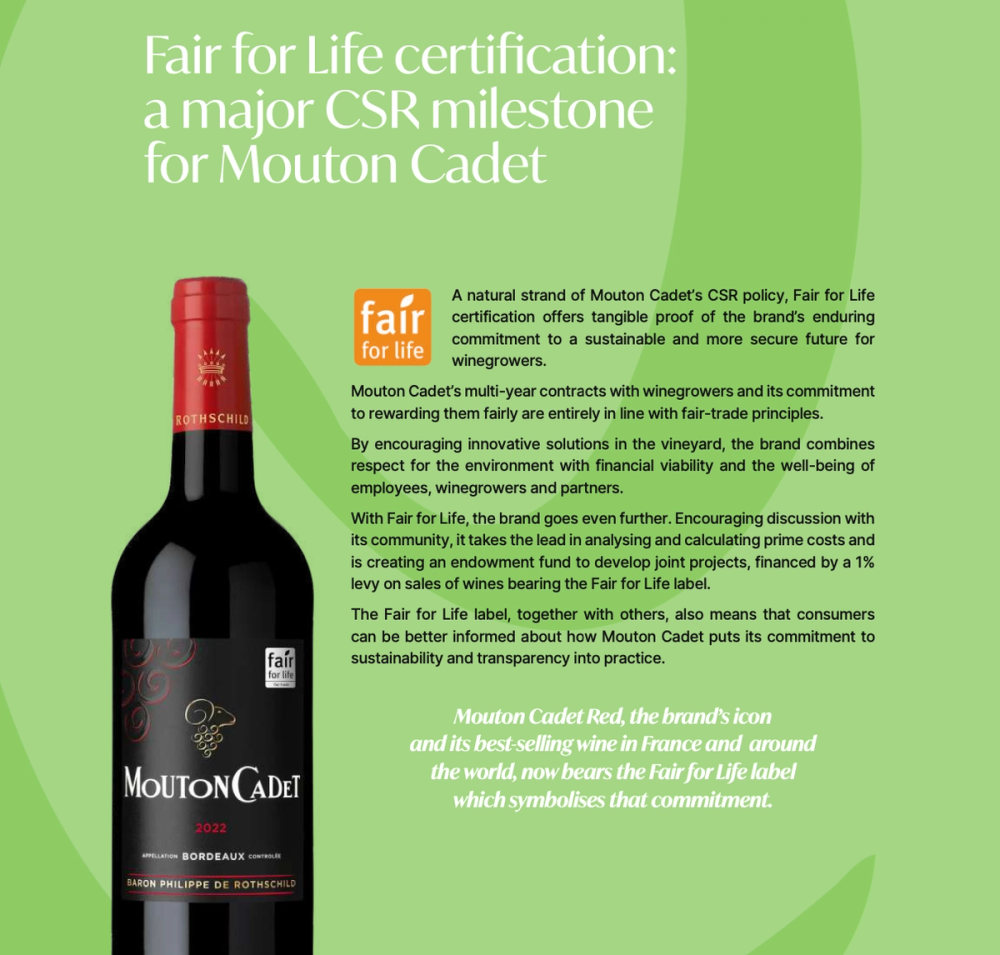
The new Fair for Life accreditation scheme for Mouton Cadet
There is also an understanding that Mouton Cadet has a role to play in not just representing the best of what Bordeaux can produce in terms of a major international wine brand – producing over 10 million bottles a year. But how it can act as a standard bearer to show what can be achieved be it in Bordeaux or around the world, by growers and producers working actively and effectively together.
“We need to stay humble. We need to go step-by-step with the farmers and growers,” added Aguirre.
Which is why the Mouton Cadet brand of tomorrow has to be different to one of the past. A brand that is tune with the “sensitivities” that the young generation has to the environment and what their role is supporting and protecting it, he said.
“We can’t lose our identity. But our story has to be right. For many Mouton Cadet was the brand for their fathers. We have to bring them with us. To surprise them,” said Philippe Sereys de Rothschild.
Hombroek talks a lot about aligning the company’s sustainability strategy with a “vision”for the brand that is also in tune with what its consumers want.“We need to present Bordeaux in a more sustainable way,” she said.
Building a community
She is also quick to stress that its formal sustainability efforts go back at least to 2010 when it introduced long term contracts with all its growers designed to give them the support and security they need.
Mouton Cadet currently works with 150 growers, covering around 1,500 hectares of which 70% have been with the business for at least seven years. The average grower owns around 20 hectares of vines and 30% are organic.
It is noticeable how often both Hombroek and Philippe Sereys de Rothschild talk about wanting to have a strategy and philosophy based around building a community spirit with its growers, where they are all working together for their mutual benefit.
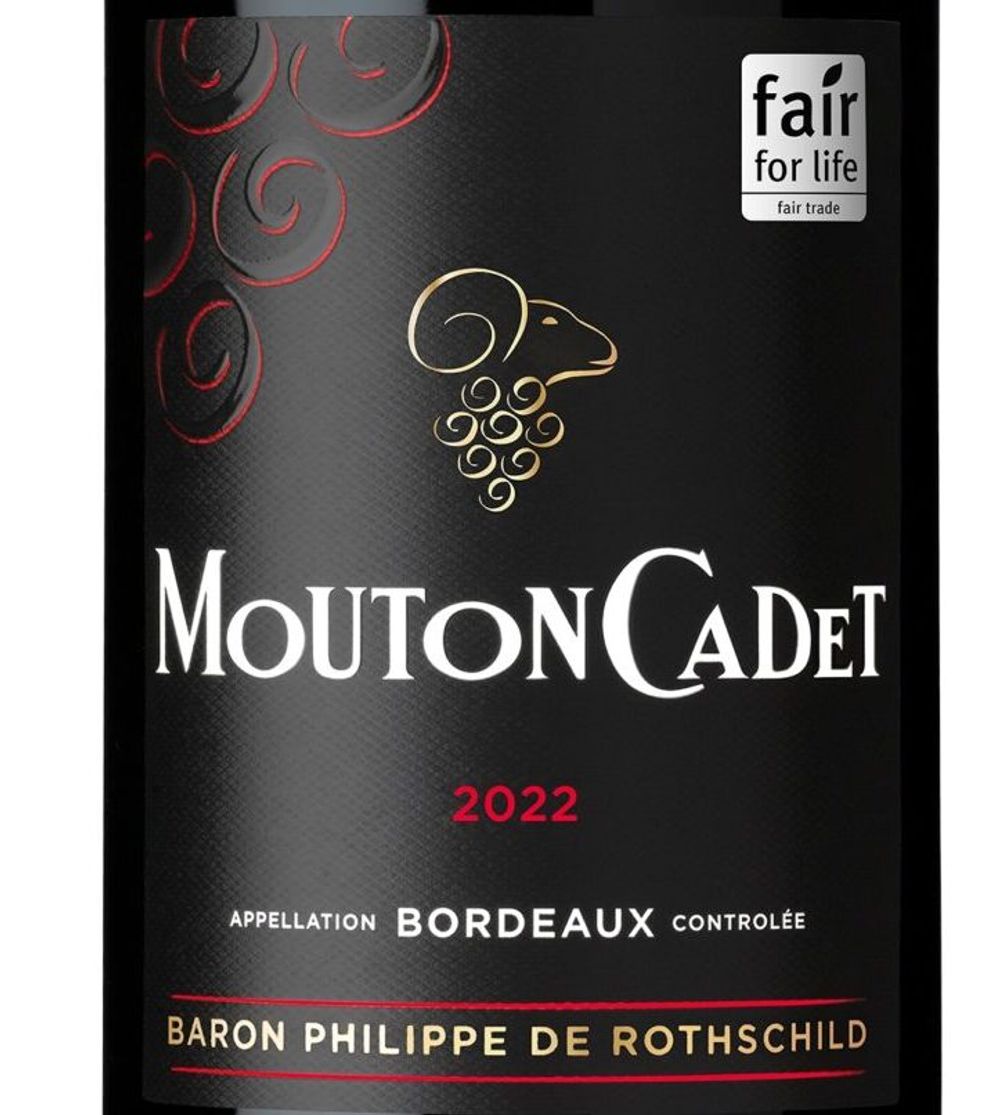
The new Fair for Life branded label for Mouton Cadet
“We want our growers to feel part of the Mouton Cadet community,” explained Hombroek. “You are a Mouton Cadet grower, you are part of our team, part of our family. They are also the ones that are in their vineyards every day. They are the ones listening to their vines and their consumers. We want to listen to them and share their experiences.
They also want to make sure all their growers, and their families, have as long a future as they want with the business. That is where Aguirre, and his winemaking team, come into play working with the growers to ensure their soils and vines are healthy and that they are working together to make sure the quality of grapes is what they both need.
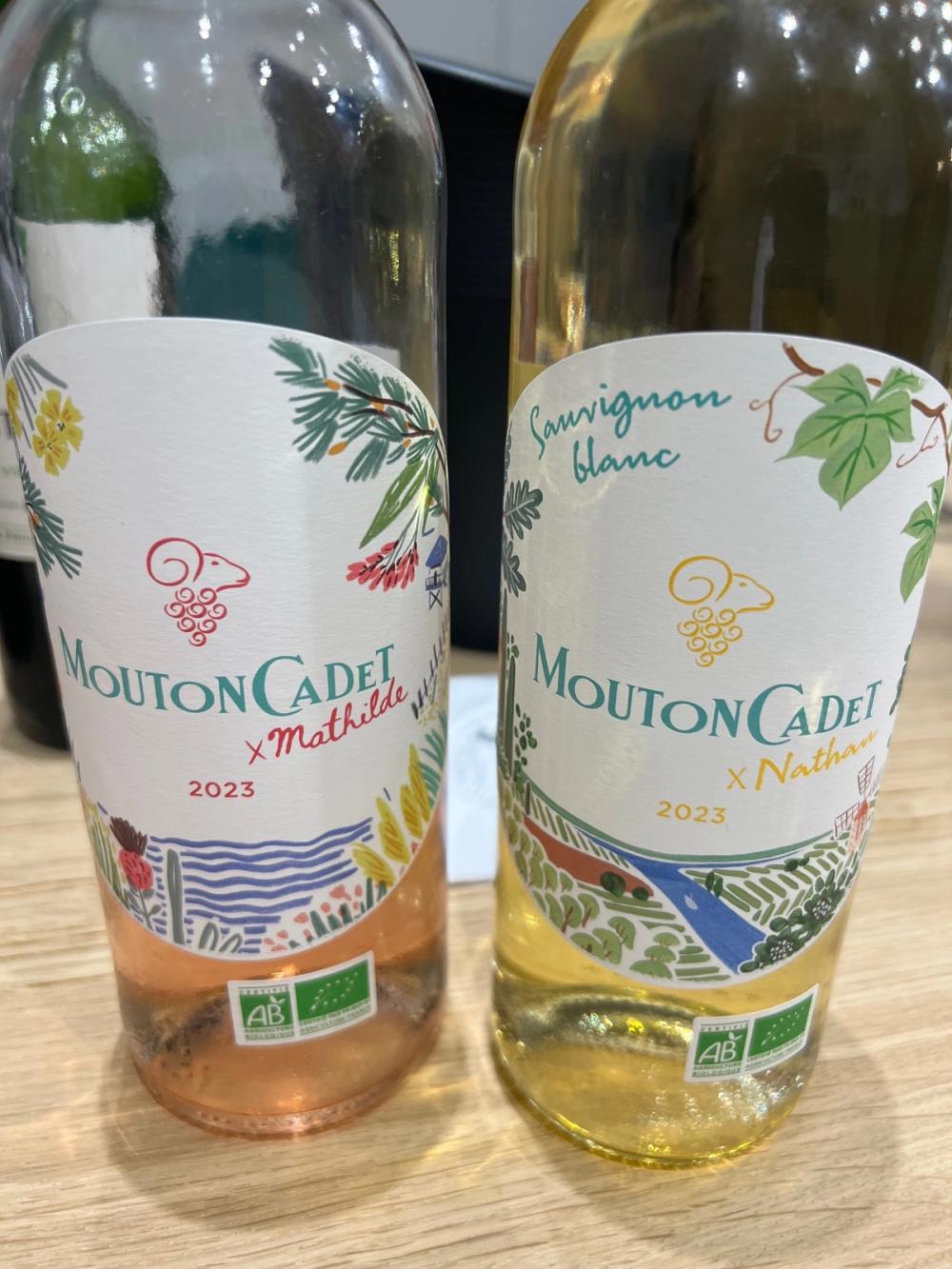
“It’s important we maintain that family connection with the vineyards, that we do what we can to defend it,” said Aguirre, whilst also taking the necessary steps together to make sure the vineyards are run as sustainably as possible so they can be passed on to the next generation. “We need to help break the rules and create new rules for Bordeaux,” added Hombroek. A role to play Which essentially is what the new “Fair For Life” accreditation is all about, where everyone in the Mouton Cadet supply chain has their “role to play”. As part of the Fair For Life programme it has set up a new development fund to help growers make the investments they need to take their vines to the next level of quality, or help move over to organics – financed by a 1% levy on sales of wines bearing the Fair for Life label. It has also started a new association for its wine growers to come together to discuss and share the issues and experience they have and also explore how the new development fund can be best used for all growers. That community spirit also comes through in the new range of Mouton Cadet wines that are now blended from grapes that might come from all regions of Bordeaux, both north and south. [Object] Mouton Cadet also introduced new easy drinking styles wines at Wine Paris named after Philippe Sereys de Rothschild’s children
Easy drinking, approachable wines that make you want to have another glass, says Aguirre. Like the new Nathan named after one of Philippe Sereys de Rothschild’s children.
It is that opportunity to work with and blend grapes from all appellations of Bordeaux that attracted Aguirre to the head winemaker role. “That was a new challenge and opportunity for me.”
Which is why international distribution has always been so important for Mouton Cadet and seen it grow sales in over 100 countries worldwide. Markets where the brand can still feel fresh and innovative even though it is now nearly a 100 years old.
“Mouton Cadet is a brand that is very different in China and the US than it is in France,” said Philippe Sereys de Rothschild.
- You can find out more about Mouton Cadet at its website here.
